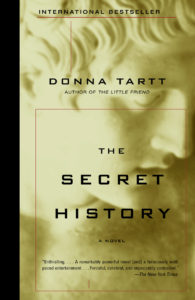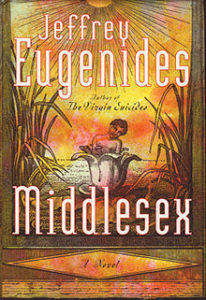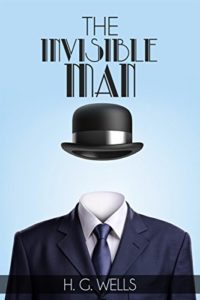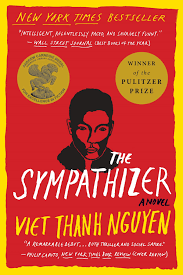Full disclosure: When I began this list, I intended to fill it with criminality, specifically my favorite novels about social climbers (Edith Wharton’s Custom of the Country); undercover police (Tana French’s The Likeness); mistaken Identities (Laura Lippman’s What the Dead Know); con artists (Patricia Highsmith’s Mr Ripley Series); and other literary grifters who helped me craft Gracie Mueller, the identity thief scheming to give her children a better life in my novel The Drama Teacher.
But then, in the same week, I read Kristin Wong’s brilliant New York Times piece about how imposter syndrome hits minority groups harder and spoke to Jessica DuPont, owner of Kingston, NY’s Half Moon Books, who told me that “when in doubt,” that is, “when space is an issue,” she moves books by white male authors to her supply room closet and gives the shelf space to female writers and authors of color.
In short, as I reflected on the literary “frauds” I care most deeply about—the ones I most despaired at seeing unmasked—I realized they were intelligent, creative and capable people who felt like phonies largely because they fell outside the so-called “acceptable” norms of race, gender and socioeconomics.

Richard Papen in The Secret History
Donna Tartt’s cracking first novel about classics students at an elite Vermont college has more than enough drugs and murder to make for great narrative tension. But protagonist Richard Papen’s imposter syndrome might well be the book’s most suspenseful and human element as he attempts to hide his middle-class upbringing from the blue bloods around him. Richard’s fear of getting busted for murder is only marginally more suffocating than his daily anxieties about being outed for wearing out-of-season silk or lying about the New England prep school he never attended.
What’s more, Tartt’s observations about higher education are still maddeningly relevant in an age when female and minority students outnumber men, but the curriculum remains blindingly white, as do the professors. Underrepresented students everywhere will feel Richard’s pain, especially if they find themselves torn between conforming (and subsequently feeling like frauds) or fighting a long, bloody battle to prove their perspectives are valid and valuable.

Calliope Stephanides in Middlesex
“It was amazing how it worked: the tiniest bit of truth made credible the greatest lies,” says Calliope Stephanides, or simply “Cal,” the intersex narrator of Jeffrey Eugenides Pulitzer-prize winning novel Middlesex.
Cal does all sorts of hiding during this brilliant coming of age novel. She hides her square jaw and bulging Adam’s apple behind her tangled black hair. In puberty, she fakes her period, doing cramps “the way Meryl Streep did accents.”
But the family saga included in the plot’s dual structure also allows readers to appreciate the way acting has always been an integral part of making it in America, at least dating back to The Immigration Act of 1917, which barred thirty-three kinds of “undesirables” from entering the United States: “On the deck of the Giulia, passengers discussed how to escape the categories. In nervous cram sessions, illiterates learned to pretend to read; bigamists to admit to only one wife; anarchists to deny having read Proudhon; heart patients to simulate vigor; epileptics to deny their fits; and carriers of hereditary diseases to neglect mentioning them.”

Unnamed Narrator in The Invisible Man
The Oxford English Dictionary defines “imposter” as “a person who pretends to be someone else in order to deceive others, especially for fraudulent gain.” But what if bigotry does the persuasion, deciding who and what you are? And what if the small, personal gains you earn by playing a false part pale in comparison to the larger political gains reaped by those who did the casting?
Scenarios like these give Ralph Ellison’s National Book Award-winning novel a haunting quality, especially in our current climate, where unarmed Black Americans try to insure their protection with tips for not getting killed by police and undocumented immigrants retreat into the shadows, lest Trump’s vast, cruel ICE, deport them as they actively seek asylum or interview to become permanent legal residents.
Alone in underground Harlem, the unnamed black narrator in Ralph Ellison’s National Book Award-winning novel gives readers the story of his life, taking special care with the times he was double-crossed, stereotyped and outright used, such as the “Battle Royal,” where he is tricked into fighting other blindfolded, young black men for the amusement of rich, white spectators, who laugh when the boys are brutally injured and then rob them of their promised pay.
Even when he tries to follow the tenets of the fabled American dream—work hard, be brave and never give up—he experiences a “painful boomeranging” of his expectations. Whether he is “for” society or “against it,” he feels like an imposter each time he is forced to conform to a role:
“My problem was that I always tried to go in everyone’s way but my own. I have always been called one thing and then another while no one really wished to hear what I called myself.”

Anonymous Narrator in The Sympathizer
“I am a spy, a sleeper, a spook, a man with two faces,” begins Nguyen’s Vietnam-era spy novel The Sympathizer, about a double-agent carrying out assassinations for the South Vietnamese general to whom he feigns loyalty. The New York Times described the story as “about being forced to hide yourself under so many layers that you’re not sure who you are.”
“It’s universal,” Nguyen has said of refugees and American immigrants, not to mention his boyhood experience of playing a dutiful Vietnamese son at home and a carefree, American California teen at school. “Most of us have that sense of duality. That sense of pretending to be somebody, or to be an imposter…I knew that my autobiographical experience of wearing a mask, of having two faces, of always pretending, of doubting my own interiority, could be allegorized. And so the spy would be the vehicle for these emotional experiences and exaggerated to a great degree so it would be much more interesting.”

Enric Marco and Javier Cercas in The Imposter: A True Story
The Imposter isn’t entirely biography or fiction. (Although Marco describes it as “a novel without fiction.”) It’s the Man Booker Prize-wining half-fictionalized biography of Enric Marco, a former anarchist and trade unionist who wrote and spoke about his time in German concentration camps until 2005, when his “experiences” were exposed as lies.
Although Marco is the con man, the most fascinating imposter syndrome is suffered by the author himself, who wonders whether he is even qualified to tell the story, given novelists traffic in deception as well. Crecas reminds us that a novel is the ultimate confidence act, performed by people who were drawn to language because of some feeling of disconnection and tell fictions, like Marco, “not out of egotism, but generosity, not out of vanity, but altruism, to educate younger generations about the horrors, to unearth the historical memory for this amnesic country.”

















